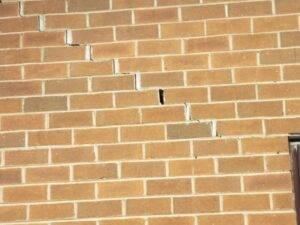Why you need a foundation inspection before purchasing a home in Eastern North Carolina.
Are you thinking of purchasing a home in Eastern North Carolina? If so, it is important to consider getting a foundation inspection before you make the purchase. Here are some reasons why it is a good idea to get a foundation inspection:
1. Foundation stability: A foundation inspection is important because it can detect any underlying structural issues that could lead to the foundation becoming unstable. Unstable foundations can cause a range of problems such as cracking and shifting walls, water infiltration, and mold growth.
2. Resale value: Getting a foundation inspection can help protect your investment. It can provide you with the information you need to make an informed decision about the property. The condition of the foundation will affect the resale value of a home, so it is important to be aware of any potential issues before you purchase.
3. Avoid costly repairs: By getting a foundation inspection, you can avoid costly repairs in the future. Foundation inspections can detect small problems that, if left unaddressed, can become major issues over time.
A foundation inspection can help you identify problems early on so that you can take the necessary steps to fix them. Getting a foundation inspection is an important part of the home-buying process, especially in Kinston, North Carolina. It can protect your investment, help you avoid costly repairs, and ensure that your new home is structurally sound and safe.
Common Foundation Defects

Foundation defects can be one of the most costly home repair issues a homeowner may face. During a home inspection, it is important to be aware of any potential foundation defects as these issues may cause serious structural damage if not remedied. Common foundation defects that may be found during a home inspection include cracks in the foundation, water damage, termites and other wood–destroying organisms, and settlement.
Cracks in the foundation are a common defect that is often found during a home inspection. These cracks may be caused by age, poor construction, or soil erosion and can range in severity. Minor cracks may be filled with caulking or grout, while more severe cracks may require a structural engineer to assess the damage and provide a repair plan.
Water damage is another common issue that can occur in homes with foundation defects. Cracks in the foundation can allow water to seep into the basement or crawl space, which can lead to a variety of consequences including mold and mildew, wood rot, and weakened structural integrity. It is important to inspect for water damage and address any issues promptly to prevent further damage.
Termites and other wood–destroying organisms can also be a sign of foundation damage. These pests can cause serious damage to the wood components of the home and should be addressed immediately. A home inspector may recommend that a pest control company be called to address the issue.
Finally, settlement can be a sign of foundation damage. Settlement occurs when the soil beneath the foundation shifts, causing the foundation to settle or sink. This can cause cracks in the foundation and can lead to serious structural damage if not addressed promptly.
Foundation defects can be costly and time–consuming to repair, so it is important to be aware of any potential issues during a home inspection. The common foundation defects mentioned above are just a few of the issues that can be found during a home inspection. If any of these defects are found, it is important to contact a qualified contractor to assess the damage and provide a repair plan.

